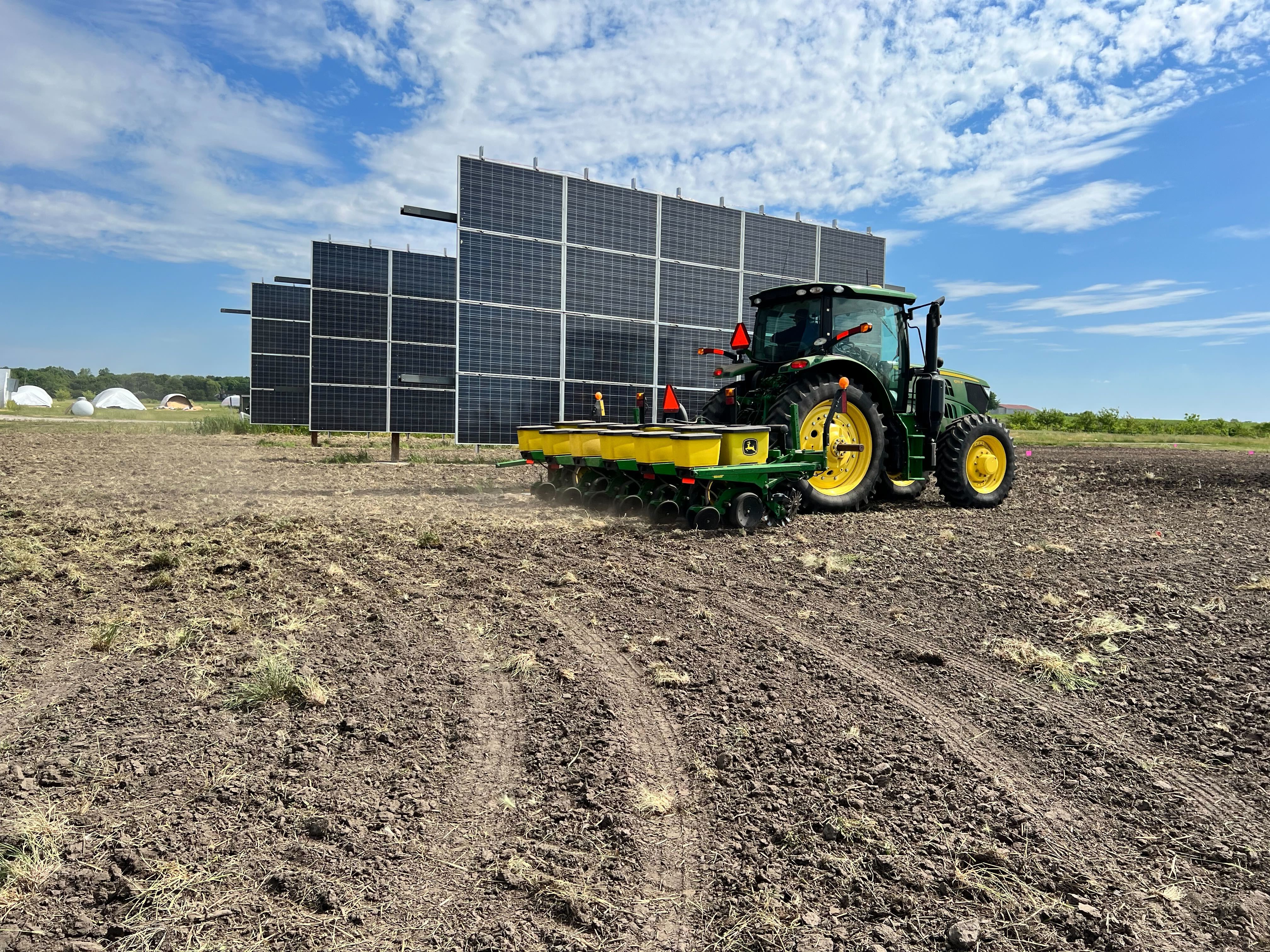
The declining cost of photovoltaic technology and rising market and policy incentives for solar energy make it increasingly profitable to convert cropland to solar farms, leading to a potential conflict with food crops. Agrivoltaics (AVs), the co-located production of solar energy and crops, is an emerging technology that can reduce this competition for land, provide climate-smart solutions to improve land productivity (combined crop and electricity yield), crop water-use efficiency, profitability and economic resilience of agriculture. Deployment of AVs in Asia and Europe is growing, and there is increasing interest among farmers in the U.S. The project for Sustainably Co-locating Agricultural and Photovoltaic Electricity Systems (SCAPES) funded by the US Department of Agriculture aims to provide interdisciplinary scientific knowledge, extension and education for designing sustainable AV technologies that can increase the economic well-being and resilience of US farmers by maintaining/enhancing food production while increasing renewable energy generation across different biophysical environments in the US. In this talk, I will explore the profitability of several AV design configurations and scenarios and discuss the implications and further work required.
Paul Mwebaze is an Agricultural Economist and project manager of SCAPES based at the Institute of Sustainability, Energy and Environment (ISEE) at the University of Illinois Urbana Champaign, US. He researches the economics of using land for food and energy production and is also a member of IAGRE.
